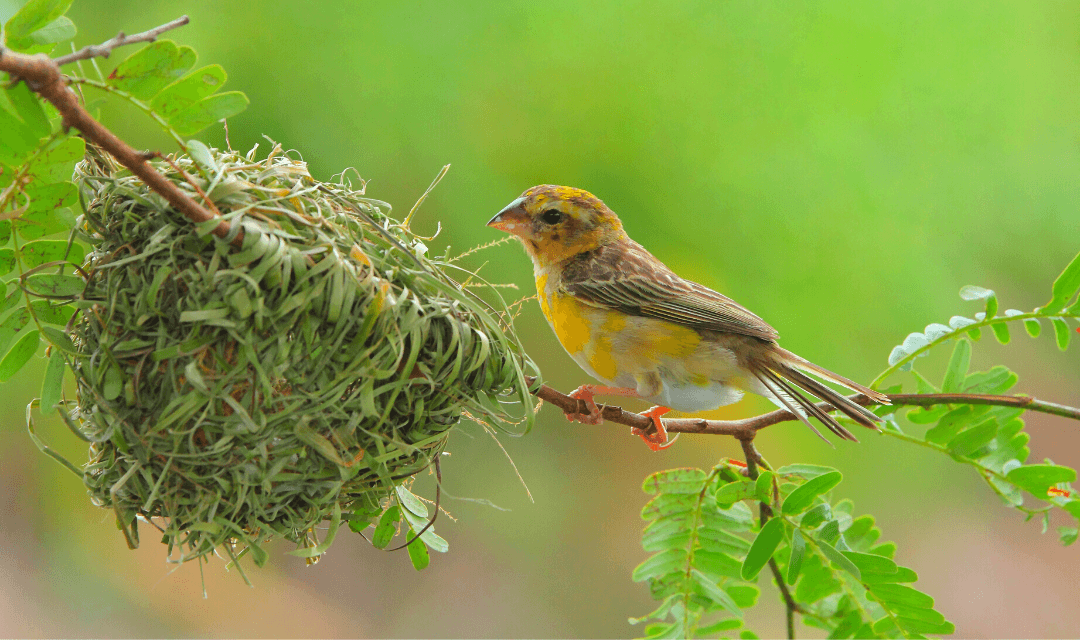Christian theology regards human beings as creatures standing both within and beyond nature, the material world. Although exceptions as old as Lucretius abound, this belief is also found outside the Christian faith. So far as we can tell, humans are the only creatures who distinguish themselves in this way. Mary Oliver, best known for her Pulitzer-prize-winning poetry collection American Primitive (Atlantic/Little, 1983), believes animals rejoice at being alive in this world but knows they do not question their place in it. Given this difference between us and the rest of the cosmos, it is reasonable to wonder if nature can tell us anything significant about our spiritual selves or lead us to God. Oliver’s poems — anchored by close, attentive descriptions of the natural world — reach beyond the physical to consider the nature of God and human beings, and the possibilities of life after death. Her works detail the beauty, fragility, cruelty, and kindness of the natural world. From it, she gleans hints about human life, attentiveness yielding wonders — both glorious and terrible — that would otherwise pass her by. Forming her to receive the world as a gift, attentiveness draws Oliver ever more deeply into the world’s always deepening depths. She is surprised by revelations, moved by beauty, solaced by a creature’s contentment with itself, instructed by its willing consent to be what it is given to be. If, however, nature were enough, Christ would be superfluous. St. Bonaventure claims, “we are so created that the material universe itself is a ladder by which we may ascend to God.” But he also insists, “we cannot rise above ourselves unless a superior power raise us,” a power he identifies as Christ in whom we have definitive hope for life in the face of death. Because He is truth both incarnate and transcendent, Christ overrules the norms of nature.
This Postmodern Realities episode is a conversation with JOURNAL author Stephen Mitchell about his online-exclusive article, “Christ or Lucretius: Nature and Nature’s God in the poems of Mary Olivere”.
Locked articles are online exclusive content that are only available to subscribers. There are three subscription options to access our online exclusive content.
1. Subscribe ($33.50) to the print edition of the Christian Research Journal which includes all online exclusive content.
2. Pay a monthly fee ($4.99) for Christian Research Journal online exclusive content. This does not include online versions of current print edition articles or receiving the print issues.
3. Pay an annual fee ($24.99) for Christian Research Journal online exclusive content. This does not include online versions of current print edition articles or receiving the print issues.
For more information and to subscribe please click here.
Note online-exclusives are eventually made available to the public at regular intervals but to gain access to read it when it’s originally posted subscribing at the link above is the best option.
When you to subscribe to the Journal, you join the team of print subscribers whose paid subscriptions help provide the resources at equip.org that minister to people worldwide. These resources include our ever growing database of over 1,500 articles, as well as our free Postmodern Realities podcast.
Another way you can support our online articles is by leaving us a tip. A tip is just a small amount, like $3, $5, or $10 which is the cost for some of a latte, lunch out, or coffee drink. To leave a tip, click here
Other articles podcasts featuring this author:
Episode 301: Moving by Staying Put: Christian Pilgrimage in Marilynne Robinson’s Gilead
“Moving by Staying Put: Christian Pilgrimage in Marilynne Robinson’s Gilead” in the 45:2-3 (Fall 2022) edition of the Christian Research Journal.
Episode 248 Myself Am Hell: Rebellion and Gratitude in Milton’s Paradise Lost
Myself Am Hell: Rebellion and Gratitude in Milton’s Paradise Lost
Episode 201 Albert Camus and the Fight for Life
The Sting of Death: Albert Camus and the Fight for Life
Episode 189 Second-Rate Musician: Vocation and Performance in T. S. Eliot’s The Confidential Clerk
“Second-Rate Musician: Vocation and Performance in T. S. Eliot’s The Confidential Clerk “.
Episode 135-Questing for Divine Love-Cormac McCarthy’s The Road
Questing for Divine Love-Cormac McCarthy’s The Road
Episode 111 Humanity Crucified: Hemingway and the Human Condition
Humanity Crucified: Hemingway and the Human Condition
Episode 092 Literary Apologetics: Flannery O’Connor
Flannery O’Connor and the Problem of Freedom
Episode 045: Alexander Solzhenitsyn Confronts the Grand Inquisitor
